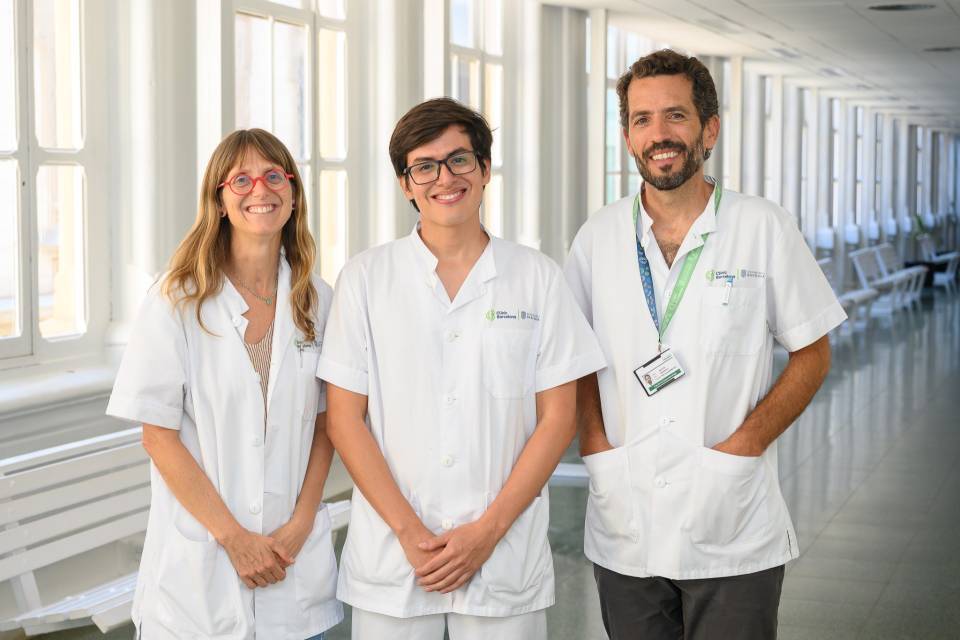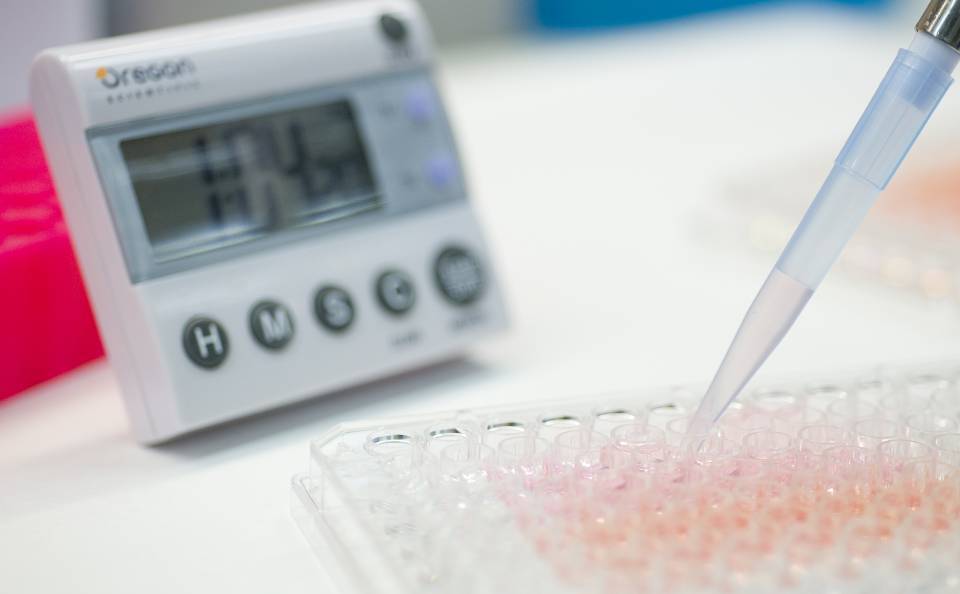The results of the study, published in the journal Lancet Gastroenterology and Hepatology, indicate that artificial intelligence-assisted colonoscopy is no better than high-definition white-light colonoscopy at detecting the cancer precursor lesions typical of Lynch syndrome.
The study, entitled TIMELY, was carried out by Oswaldo Ortiz, specialist in the Gastroenterology Service, and was coordinated by Francesc Balaguer, head of the Gastroenterology Service at the Clínic and researcher in the IDIBAPS and CIBEREHD Gastrointestinal and Pancreatic Oncology group, and Maria Pellisé, head of the Endoscopy, Functional Tests and Motility Section of the Gastroenterology Service and researcher in the same group.
Lynch syndrome and the importance of early detection
Lynch syndrome is the most common form of hereditary predisposition to colorectal cancer. In these patients, the adenomas, which are precursor lesions of cancer, are usually small, flat and located in the proximal colon, making them difficult to detect. Surveillance colonoscopies, therefore, require high quality standards to reduce the risk of these patients developing colorectal cancer.
In recent years, computer-aided detection (CADe) systems have shown to be effective in increasing the detection of polyps in the general population, but it was not known whether this benefit translated to patients with Lynch syndrome.
So, a team of researchers from the Clínic-IDIBAPS led an international, multicentre study, which was carried out in 17 European centres. It consisted of comparing the efficacy of artificial intelligence-assisted colonoscopy with high-definition white-light colonoscopy in the detection of adenomas in patients with Lynch syndrome.
Determining the efficacy of an AI-assisted colonoscopy compared with the conventional method
The study included 430 participants who were randomly divided into two groups: participants in one group received artificial intelligence-assisted (CADe) colonoscopies and those in the other received conventional colonoscopies. The results showed that the use of CADe did not improve the detection of adenomas compared with the use of conventional colonoscopies. The mean number of adenomas detected per procedure was equal in both groups (0.64 adenomas per colonoscopy).
This finding underlines the importance of maintaining high quality standards in colonoscopies and raises doubts about the true added value of artificial intelligence in this specific subpopulation. However, the study observed that CADe was more effective in identifying serrated lesions measuring 5 -9 mm, although the latter are often of less clinical relevance in the context of Lynch syndrome.
The researchers concluded that, despite technological advances, high-quality control and thorough inspection of the colonic mucosa remain the cornerstone in surveillance of Lynch syndrome. Moreover, they underlined the need for continuing training of endoscopists and highlighted the possible limitations and challenges of implementing these assistive technologies in this population.
Study funding
This project received funding from the Spanish Gastroenterology Association, the Spanish Society of Digestive Endoscopy, the European Society of Gastrointestinal Endoscopy, the Medtronic Artificial Intelligence Research Award Grant (2021), the Catalan Digestology Society, the Carlos III Health Institute and the La Marató de TV3 2020 Telethon Grant, co-funded by the European Union.
Study reference:
Ortiz O, Daca-Alvarez M, Rivero-Sanchez L, Gimeno-Garcia AZ, Carrillo-Palau M, Alvarez V, Ledo-Rodriguez A, Ricciardiello L, Pierantoni C, Hüneburg R, Nattermann J, Bisschops R, Tejpar S, Huerta A, Riu Pons F, Alvarez-Urturi C, López-Vicente J, Repici A, Hassan C, Cid L, Cavestro GM, Romero-Mascarell C, Gordillo J, Puig I, Herraiz M, Betes M, Herrero J, Jover R, Balaguer F, Pellisé M; TIMELY study group. An artificial intelligence-assisted system versus white light endoscopy alone for adenoma detection in individuals with Lynch syndrome (TIMELY): an international, multicentre, randomised controlled trial. Lancet Gastroenterol Hepatol. 2024 Sep;9(9):802-810. doi: 10.1016/S2468-1253(24)00187-0.




